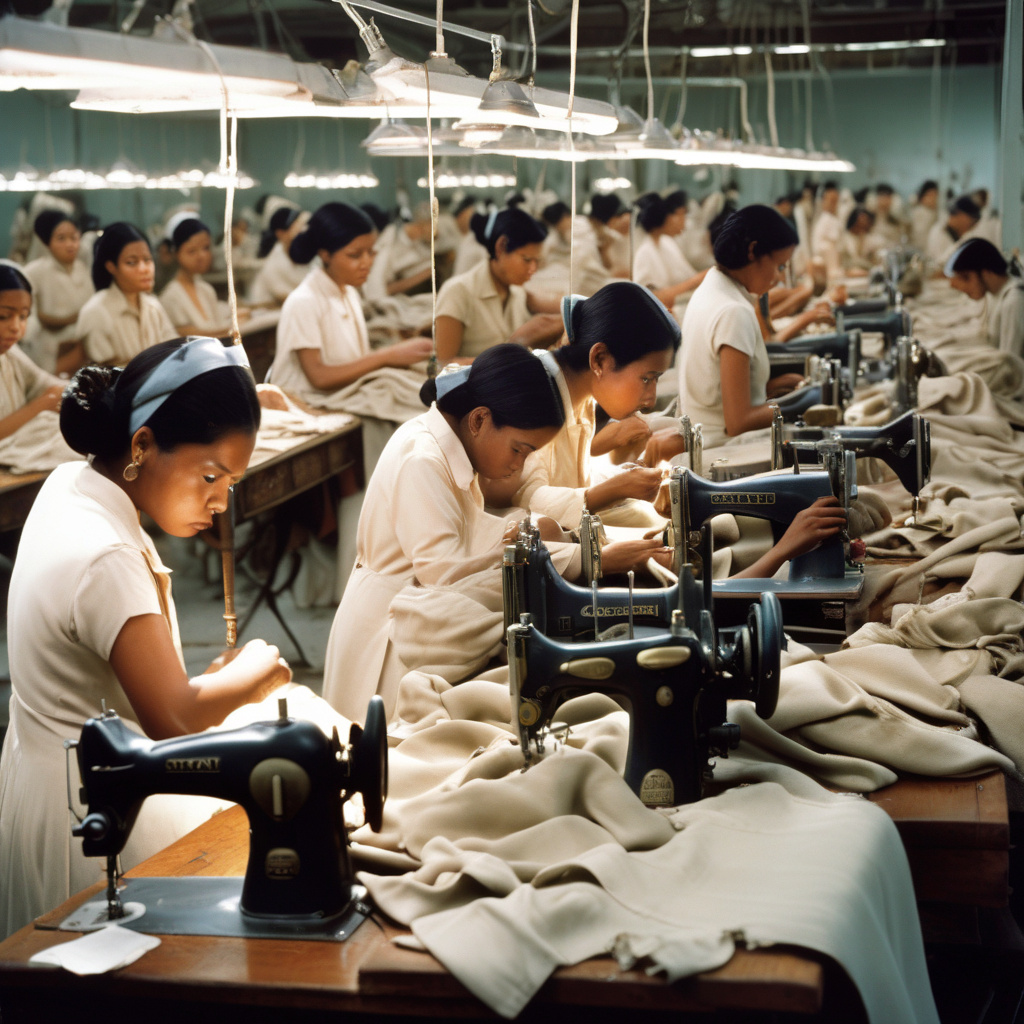Amid Sweatshop Scandals, Luxury Hits Back: ‘We’re Not the Financial Police’
In recent years, the luxury goods sector has faced intense scrutiny over its supply chain practices. High-profile sweatshop scandals have shone a spotlight on labor conditions in factories that produce everything from designer handbags to haute couture garments. As public outrage swells, luxury brands are beginning to push back against accusations of complicity, arguing that the responsibility for enforcing labor laws lies more with government entities than with them.
The discussion surrounding the ethical implications of luxury fashion is not new; however, the stakes have risen significantly in light of several recent revelations. Investigative reports have unveiled shocking details about the working conditions in factories that manufacture luxury items. Workers often face long hours, inadequate pay, and unsafe environments. The backlash has led to protests, campaigns, and calls for accountability, prompting luxury brands to reassess their public relations strategies.
Amid this turmoil, some industry leaders are vocalizing a contentious stance: they believe that the onus of enforcing labor laws should not rest solely on their shoulders. “We’re not the financial police,” remarks a spokesperson from a prominent luxury brand, encapsulating a sentiment that is gaining traction within the sector. This perspective highlights an evolving narrative in which luxury brands argue that they cannot be held accountable for every misstep occurring deep within their supply chains.
Supporters of this viewpoint contend that the complexities of global supply chains make it nearly impossible for brands to monitor every single factory and worker involved in the production of their goods. Many luxury companies source materials and labor from various countries, each with its own set of labor laws, regulations, and enforcement levels. In this context, it is easy to see why brands would argue that they cannot be expected to act as the ultimate authority on labor practices.
However, critics argue that luxury brands have a moral obligation to ensure that their supply chains are free from exploitation. They contend that the very nature of luxury products—often marketed as symbols of status and ethical superiority—requires brands to take a more active role in monitoring and improving labor practices. This argument is further bolstered by the fact that many luxury brands have dedicated significant resources to marketing their commitment to sustainability and ethical practices.
The political implications of this debate cannot be ignored. As luxury brands push back against accusations of wrongdoing, they are also shifting the blame to governmental entities. Advocates for reform argue that this represents a dangerous precedent. By suggesting that government bodies should take responsibility for enforcing labor laws, luxury brands risk absolving themselves of ethical accountability. This shift in narrative can be seen as an attempt to deflect criticism while simultaneously avoiding the more complex conversations about corporate responsibility and transparency.
Recent examples illustrate this tension. In 2021, a prominent fashion house faced allegations regarding the treatment of workers in a factory in Southeast Asia. The brand’s response emphasized its commitment to ethical sourcing but fell short of addressing the specific allegations. Instead, the company pointed towards the local government’s failures in enforcing labor laws. This defensive posture sparked outrage among consumers and activists who argued that the brand should have taken a more proactive stance.
Additionally, industry organizations have begun to advocate for a more collaborative approach between brands and governments. They argue that luxury companies should work alongside governmental agencies to improve labor conditions rather than relying on them as scapegoats. This could involve more transparency in supply chains, regular audits, and partnerships with non-profit organizations focused on labor rights. While some brands have taken steps to improve their practices, there remains a considerable gap between their promises and the realities faced by workers.
Furthermore, as consumers become increasingly aware of the ethical implications of their purchases, luxury brands must adapt to shifting public expectations. A growing market of conscious consumers is demanding transparency and accountability in the products they buy. Brands that fail to address these concerns risk alienating a significant portion of their customer base.
The luxury sector’s response to sweatshop scandals will likely shape its future trajectory. As the political landscape evolves, luxury brands that adopt a more proactive approach to ethical labor practices may find themselves better positioned in an increasingly competitive market. The call for responsible sourcing and manufacturing is not just a trend; it has become a fundamental expectation among consumers.
In conclusion, the luxury industry is at a crossroads. As sweatshop scandals continue to surface, the narrative surrounding accountability and responsibility is becoming more complex. Brands that continue to deflect responsibility may find themselves facing growing consumer backlash, while those that embrace a commitment to ethical practices may thrive in an environment where transparency is prized. The conversation about who should enforce labor laws and standards is just beginning, but one thing is clear: the luxury sector cannot afford to ignore the ethical implications of its supply chains.
#LuxuryFashion #EthicalSourcing #SupplyChainTransparency #LaborRights #CorporateResponsibility
